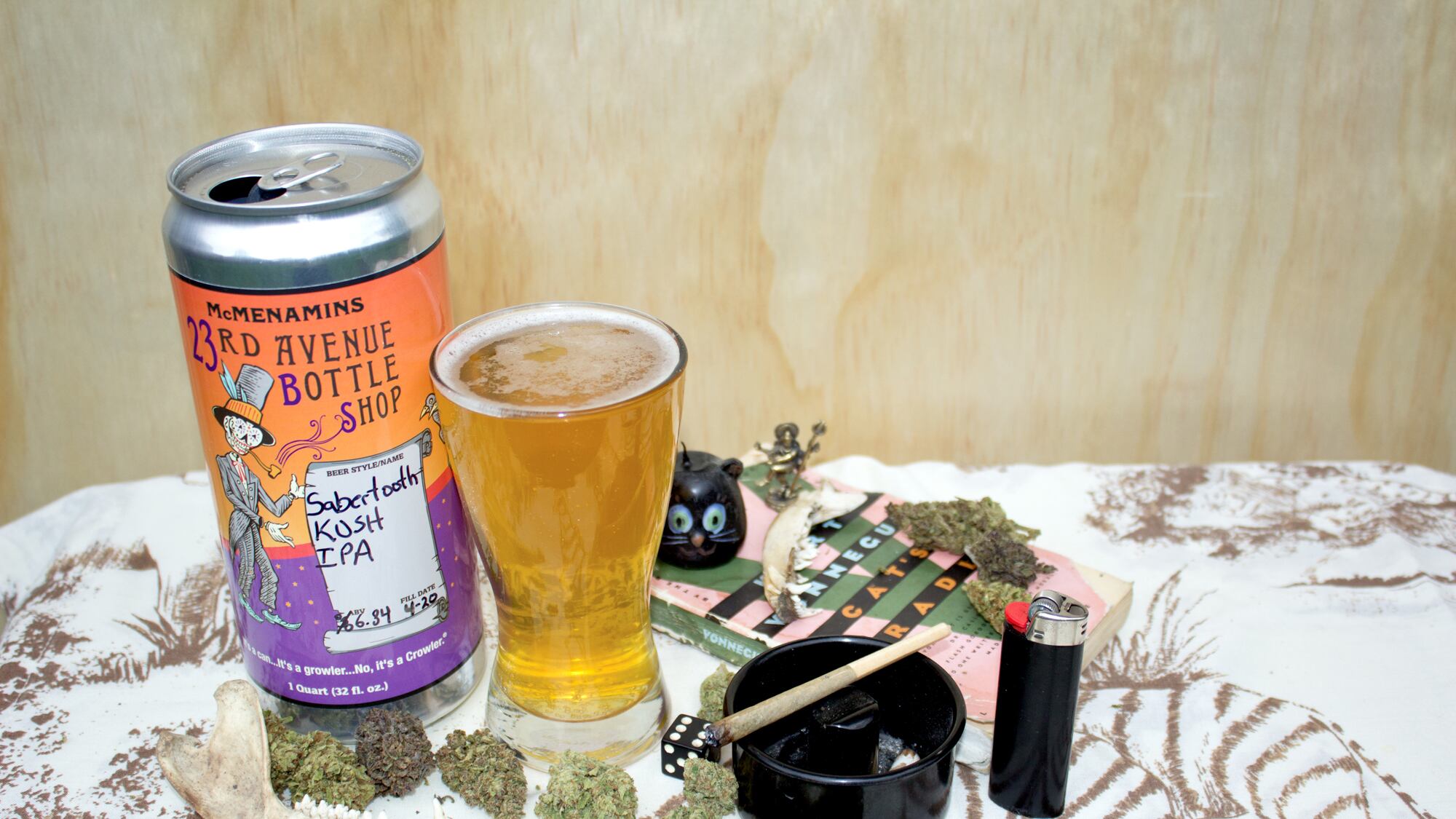Come Jan. 1, the Oregon Liquor Control Commission will no longer allow the production or sale of CBD-infused alcohol.
OLCC spokesman Matthew Van Sickle says that's because CBD-infused drinks aren't federally legal under the U.S Food and Drug Administration. The decision was first reported by Oregon Public Broadcasting.
"This order puts powers into OLCC's hands that these products aren't being produced and sold in Oregon," says Van Sickle.
CBD, which stands for cannabidiol, is the non-intoxicating component of the cannabis plant, normally derived from hemp.
Last month, the FDA concluded that the agency didn't have the data to deem CBD safe for human consumption. Van Sickle says the OLCC is using federal caution to guide its own policies.
"This order clarifies that the OLCC has the ability to act on this now," says Van Sickle. "We are not coming out and saying you can't put CBD in anything. We're saying there needs to be a bit more caution about what goes into a product."
The most common alcoholic beverage in the state to be CBD-infused is beer, though there are few commercially available in Oregon. The first to enter the market was Coalition's Two Flowers IPA, but the brewery shut down earlier this year.
Every new beer formula must be approved by the The Alcohol and Tobacco Tax and Trade Bureau before being sold. Van Sickle says no CBD-infused beers have been approved by the bureau.
"They need to approve formularies, but they haven't approved any formularies that are CBD-beers," says Van Sickle. "Federally, they cannot sell a CBD beer. That's not allowed."
Related: Five places to get weedy drinks in Portland.
CBD-enthusiasts can still have cocktails at bars where the CBD is added as the cocktail is being mixed.
But Van Sickle says the OLCC is "encouraging patrons and establishments to use an abundance of caution" and urges bars to not sell those products. Van Sickle says the OLCC will look to eventually ban cocktails mixed with CBD, too.
Van Sickle says the amount of producers and bars selling CBD-infused drinks are "still the minority," but concedes it's been a recently growing trend.
Other products that are CBD-infused—including chocolate, water and dog food—fall under the jurisdiction of the Oregon Department of Agriculture and are still available for sale, says Van Sickle.
The regulatory environment for weed is strict, says OLCC spokesman Mark Pettinger, but the newer hemp industry is still working on developing a regulatory framework that keeps licensees compliant with federal law.
"Hemp is where marijuana was four or five years ago, it's more of a wild, wild west than marijuana is," says Pettinger. "Some of this extends to [last year's] Farm Bill and the entry of hemp as a federally recognized commodity into the marketplace. But states don't have their plans in place yet."
